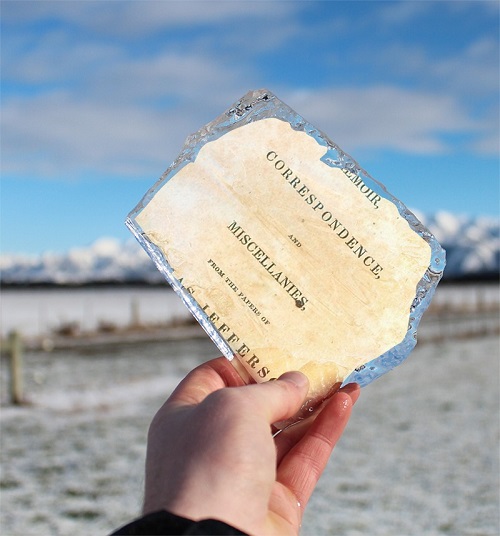I watch very little television and other than business-y things, I read little of the immediate news which flares continually. If something’s only relevant the day it’s published, it’s not relevant at all.
History repeats itself. I feel better informed about the problems of today by comprehensively reading and understanding yesterday.
This is a letter that Thomas Jefferson wrote over 200 years ago. Nothing is new.
Thomas Jefferson to John Norvell – 14 June 1807
To your request of my opinion of the manner in which a newspaper should be conducted, so as to be most useful, I should answer, “by restraining it to true facts & sound principles only.” Yet I fear such a paper would find few subscribers.
It is a melancholy truth, that a suppression of the press could not more compleatly deprive the nation of it’s benefits, than is done by it’s abandoned prostitution to falsehood. Nothing can now be believed which is seen in a newspaper. Truth itself becomes suspicious by being put into that polluted vehicle. The real extent of this state of misinformation is known only to those who are in situations to confront facts within their knolege with the lies of the day.
I really look with commiseration over the great body of my fellow citizens, who, reading newspapers, live & die in the belief, that they have known something of what has been passing in the world in their time; whereas the accounts they have read in newspapers are just as true a history of any other period of the world as of the present, except that the real names of the day are affixed to their fables. General facts may indeed be collected from them, such as that Europe is now at war, that Bonaparte has been a successful warrior, that he has subjected a great portion of Europe to his will, &c., &c.; but no details can be relied on. I will add, that the man who never looks into a newspaper is better informed than he who reads them; inasmuch as he who knows nothing is nearer to truth than he whose mind is filled with falsehoods & errors. He who reads nothing will still learn the great facts, and the details are all false.
Perhaps an editor might begin a reformation in some such way as this. Divide his paper into 4 chapters, heading the 1st, Truths. 2d, Probabilities. 3d, Possibilities. 4th, Lies. The first chapter would be very short, as it would contain little more than authentic papers, and information from such sources as the editor would be willing to risk his own reputation for their truth. The 2d would contain what, from a mature consideration of all circumstances, his judgment should conclude to be probably true. This, however, should rather contain too little than too much. The 3d & 4th should be professedly for those readers who would rather have lies for their money than the blank paper they would occupy.
07Jul
Nothing is new. A great letter from Jefferson. Truths. Probabilities. Possibilities. Lies

